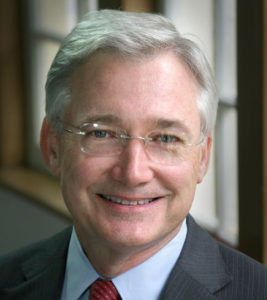In these days of “alternative facts,” pronouncements that “truth is relative,” where science is disregarded as just another opinion, and where we are taught to distrust any news except the news on “my” channel, let’s consider what a reality-based religion might look like.
President John Adams wrote famously: “Facts are stubborn things; and whatever may be our wishes, our inclinations or the dictates of our passion, they cannot alter the state of facts and evidence.”

Stephen Shoemaker
Facts are stubborn things because they are attached to reality as it is, not as we wish it to be.
In her book Practical Mysticism, Evelyn Underhill, author of two classics, Mysticism and Worship, wrote: “Mysticism is the art of union with Reality.” By reality she meant not just the Divine Reality but the everyday reality too. The two are not detached from one another. That is a good definition of true religion: the art of union with reality.
We do many things to avoid reality. Denial is a psychological defense mechanism by which we refuse to accept reality in order to defend ourselves against the truth we do not wish to hear — or cannot bear. We turn our eyes from scientific or historical or moral truth in ways that can do us in. Denial is easier to spot in others than in ourselves.
Flannery O’Conner wrote to a friend: “The truth doesn’t change according to our ability to stomach it,” so we turn our faces from the hardest truths.
President Garfield, who served only 4 1/2 months before he was assassinated by a man with a political grudge, was a staunch seeker after truth. Garfield said, using Jesus’s words, “The truth will set you free, but first it makes you miserable.” I know what he means.
So what might a reality-based religion look like? I start with some words from Christian ethicist David Gushee, from his Facebook post, Aug. 30, 2019. He wrote that for him at this point in his life the fundamental question in ethics is “what is real and true, not what is right and wrong. Reality is prior to morality.” So let’s begin with a fearless search for what is true and what is real because God is the author of all truth and all that is real.
Second, in this age where science is disparaged, especially among Christians, we need a new re-engagement with science. Science and Christianity have had over the millennia an on again/off again relationship. Sometimes the church has opposed science, sometimes it has seen itself as partners with science in the search for truth. The early astronomer Johannes Kepler wrote, “I was merely thinking God’s thoughts after God.” In the modern age, fundamentalists have waged war against science and its findings, even to this day, but physicist/theologian John Polkinghorne leads us forward with his words: “Both science and religion are needed to interpret and understand the rich, varied and surprising way the world actually is.”
“Ideologies thrive by ignoring parts of reality inconvenient to their view of the world.”
Third, beware of any political ideology that presumes to explain all reality. Ideologies thrive by ignoring parts of reality inconvenient to their view of the world.
Fourth, check your discernment of the truth with others in your community. We all need a reality check somedays, and Christian community can be a help. And this: fact check, fact check, fact check.
Fifth, be willing to change your mind. When was the last time you changed your mind about something important?
Sixth, as we read and interpret our Scriptures, be willing to make use of what has been called historical critical study of the Bible. Its first two questions of a text of Scripture are: What do the words say, and what did the author mean? If we leapfrog these questions, our interpretations are more apt to go astray.
And finally, walk humbly. As Paul said, we see through a glass darkly, we know in part. Certainty can kill the spirit. In the phrase “dead certain” the operative word is “dead.”
It seems some days like our nation is experiencing a mass psychosis where we drift in and out of reality. The church can be one of those islands of reality in these swirling seas. We can connect with other islands of reality and so help rebuild a nation unafraid of the truth and grounded in what is real.
Stephen Shoemaker serves as pastor of Grace Baptist Church in Statesville, N.C. He served previously as pastor of Myers Park Baptist in Charlotte, N.C.; Broadway Baptist in Fort Worth, Texas; and Crescent Hill Baptist in Louisville, Ky.

